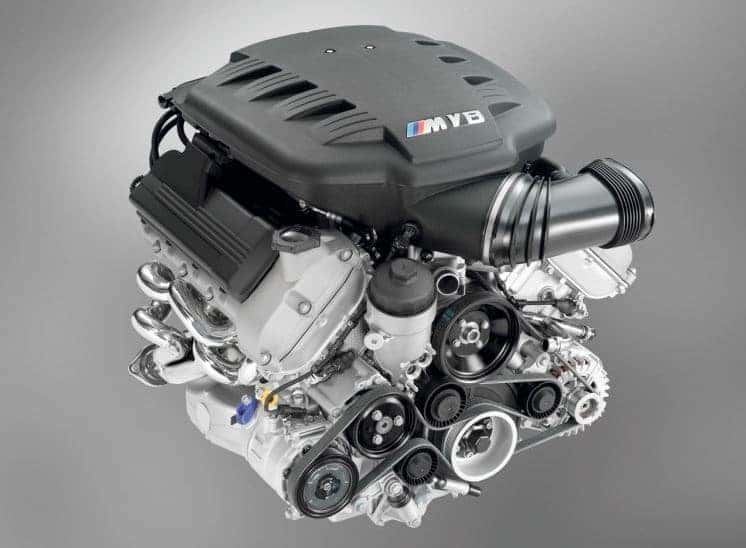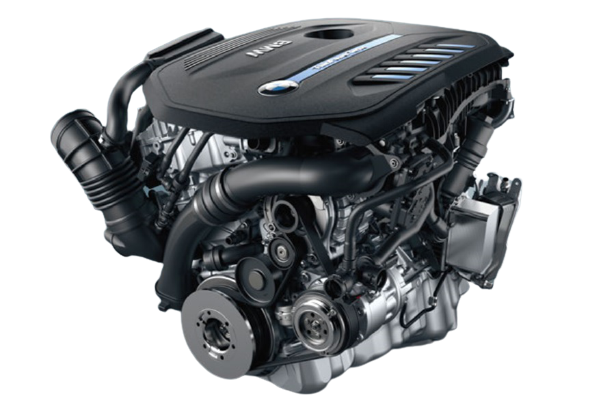How to Keep Your BMW Engine for Ideal Efficiency and Durability
How to Keep Your BMW Engine for Ideal Efficiency and Durability
Blog Article
Revealing the Intricacies of Next-Generation Power Units: a Deep Dive Into Advanced Engine Developments and designs
In the realm of vehicle engineering, the ruthless pursuit of performance, sustainability, and effectiveness has pushed the advancement of power devices to unmatched elevations. As we stand on the precipice of a brand-new period in transport, the ins and outs of next-generation engine layouts bid us to explore the advanced innovations and advancements that assure to redefine the driving experience. From innovative products that press the limits of sturdiness and weight reduction to advanced turbocharging and supercharging systems that elevate power output to brand-new levels, each element of these power devices holds a key to unlocking the future of auto design. Delving much deeper right into the realms of exhaust control, intelligent engine management systems, and the horizon of power device development, we locate ourselves on the cusp of an improvement that promises to improve the landscape of wheelchair as we understand it.
Evolution of Engine Materials

The change in the direction of advanced engine products has actually additionally allowed engineers to design engines with higher power outputs while maintaining fuel effectiveness standards. For instance, using lightweight materials lowers the general weight of the engine, resulting in enhanced gas economic climate and reduced discharges. In addition, innovations in materials technology have permitted better thermal monitoring within engines, leading to enhanced reliability and long life.
Turbocharging and Supercharging Technologies
How do Turbocharging and Supercharging Technologies revolutionize engine efficiency and effectiveness in modern-day vehicles? Supercharging and turbocharging are technologies that substantially enhance engine efficiency by boosting the quantity of air consumption right into the burning chamber. Turbocharging achieves this by using a wind turbine driven by exhaust gases to pressurize the intake air, while turbo charging makes use of a belt- or chain-driven compressor to achieve the same effect.
These innovations allow smaller sized, extra fuel-efficient engines to produce power equal to bigger ones, called downsizing. By compeling even more air into the cyndrical tubes, turbocharging and turbo charging improve burning performance, causing boosted horse power and torque outcome without a considerable rise in engine size. This causes far better acceleration, pulling capacity, and total driving efficiency.
Furthermore, turbocharging and supercharging add to boosted gas efficiency by enabling the usage of smaller engines that eat much less gas under normal driving conditions - bmw engine. This combination of improved performance and performance has made turbocharging and turbo charging integral elements of lots of contemporary engine layouts
Exhaust Control and Environmental Impact
With boosting international concerns relating to air top quality and environmental sustainability, the execution of discharge control technologies in cars plays an important role in minimizing dangerous contaminants launched into the atmosphere. Modern lorries are outfitted with advanced exhaust control systems that aid reduce the environmental impact of automotive procedures. Catalytic converters, for example, are developed to convert harmful gases such as carbon monoxide gas, nitrogen oxides, and hydrocarbons into less damaging substances like co2 and water vapor.
Moreover, innovations in engine modern technology, such as the integration of exhaust gas recirculation systems and selective catalytic decrease, have actually dramatically added to decreasing exhausts. These modern technologies work in tandem to optimize combustion performance and decrease the launch of dangerous pollutants right into the air. In addition, the advancement of hybrid and electric cars stands for an important step towards lowering the total ecological footprint of the transport industry.
Intelligent Engine Management Systems

Moreover, these systems enable vehicles to satisfy rigorous emissions requirements without jeopardizing performance, giving an extra eco pleasant driving experience. The integration of expert system and artificial intelligence abilities in engine management systems remains to press the borders of what is feasible, leading to further enhancements in effectiveness, reliability, and total lorry performance. bmw engine. As vehicle technology advancements, smart engine monitoring systems will play an important duty fit the future of transport towards a much more sustainable and reliable instructions
Future Trends in Power Unit Advancement
As intelligent engine monitoring systems lead the way for improved control and optimization in modern-day automobiles, future trends in power unit development are positioned to redefine the landscape of vehicle propulsion innovations. One of the vital patterns driving development in power system development is the shift towards electrification. With a boosting concentrate on sustainability and minimizing carbon discharges, crossbreed and electrical powertrains are ending up being extra widespread in the auto sector. These alternative source of power provide enhanced effectiveness and efficiency my explanation while aligning with strict environmental guidelines.
Another considerable pattern is the assimilation of innovative materials and producing techniques. Lightweight materials such as carbon fiber and aluminum are being utilized to lower overall lorry weight, enhancing gas effectiveness and performance. In addition, innovations in 3D printing and additive manufacturing are enabling the manufacturing of complex engine components with higher precision and resilience.
Furthermore, artificial knowledge and artificial intelligence are playing an essential function in enhancing power unit efficiency. These site technologies permit for real-time monitoring and flexible control, causing much more effective and reliable power delivery. In general, future trends in power system development are geared towards effectiveness, efficiency, and sustainability, driving the vehicle market towards a new age of propulsion technologies.

Conclusion
In verdict, the improvements in engine materials, turbocharging, exhaust control, and smart administration systems have actually led the way for next-generation power units. The elaborate styles and technologies in modern-day engines display the continuous development of auto technology.
Checking out the progressive advancements in engine materials has been essential in enhancing the performance and effectiveness of modern engines. Over the years, the advancement of engine materials has actually played a vital role in pressing the limits of what engines can achieve.The shift towards advanced engine products has also made it possible for engineers to design engines with greater power results while preserving gas efficiency standards.The application of intelligent engine management systems in modern cars has changed the way engines are controlled and enhanced for performance and performance. By collecting data Read Full Article in real-time and analyzing it with advanced formulas, smart engine administration systems can adapt to driving designs, environmental variables, and engine health to optimize power output while lessening fuel usage and emissions.
Report this page